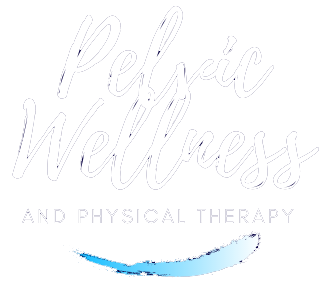Back to School for Sex Ed
It's back-to-school season, and I thought that now would be a good time to revisit the state of sex education in America. (Spoiler: It's still bad.)
As of right now, there is no federally mandated sex education in the US. Currently, the decision to provide sex ed and what the curriculum will include falls to the states and/or local school districts.
Recently, SIECUS (Sex Ed for Social Change) released the 2025 US Sex Ed Report Card, and reported that only twenty-seven states and DC have laws requiring sex education. However, only five states have laws that require comprehensive sex education (CSE).
CSE is defined as Instruction on sexual health that is:
medically accurate
age appropriate
inclusive and/or culturally relevant
evidence-based
Comprehensive sex education should cover certain topics such as STI and pregnancy prevention through contraception, healthy relationships, adolescent development, assault prevention, anatomy, sexual orientation, and gender identity.
For those wondering, the five states that require CSE are California, Oregon, Washington, Colorado, and Illinois. That means a majority of students may be living in areas that are not providing medically accurate, inclusive, comprehensive sex education. This education gap may negatively impact a person’s ability to make informed decisions relating to their health, behaviors, and relationships.
Sex education is more than intercourse and strategies to prevent pregnancy. It helps a person better understand their own body and have the language to not only engage in conversations with their partner, but it also enables them to effectively communicate questions and concerns to a healthcare provider.
Research shows that CSE has other positive effects. This includes increased knowledge of one’s rights within a sexual relationship, along with improved communication with parents about sex and relationships. Comprehensive sex education is also associated with increased condom and contraceptive use.
Another study found that CSE that included LGBTQ+ curriculum led to increased appreciation of sexual diversity with reports of decreased bullying, harassment, and homophobia.
During my prior deep dive into sex education, I found multiple articles that illustrated how a lack of education negatively impacts people.
One finding that I found particularly alarming was that 32% of people thought a tampon would prevent a menstruating person from urinating. That would mean that 32% of people believe that urine and menstrual fluid exit out of the same opening, and are not aware that urine exits out of the urethra, while menstrual blood exits out of the vagina.
It was also reported that twice as many people learned about abstinence as opposed to things like birth control or sexuality during sex education classes. Furthermore, less than 25% felt educated about their anatomy, with 14% of participants saying they don't know anything about their reproductive system.
Another study found that there were differences in how students were educated based on gender, race, and sexual orientation. Female students were more likely than their male peers to report receiving instruction on abstinence and waiting until marriage to have sex. Male students were more likely to receive instruction on condom use. The study also found that students who identify as LGBTQIA+ were less likely than their straight peers to receive instruction about HIV/STI prevention and information about birth control access.
So what can we do?
First, take a look to see what grade your state gets. If possible, connect with your local school districts, as well as your county and state officials. Consider donating to local private organizations that are working to implement CSE in your area. Finally, there is a bill, “The Real Education and Access for Healthy Youth Act,” that was reintroduced in 2025. This bill would help fund sex education and provide grants for CSE to entities that focus on adolescent health and education. It would ensure that all programs are age-appropriate and medically accurate. Also, it would repel the Title V Abstinence-Only-Until-Marriage Program. I strongly recommend reaching out to your senator and asking that they support this piece of legislation.
If you are reading this and feel like you didn’t receive the best sex education, you are not alone. Below are some resources you might find helpful, in addition to the ones already shared:
Beducated: An online sex education platform.
Scarleteen: Providing sex education for teens and young adults, although anyone can find the content useful.
Tabú: Works to provide shame-free sex education for everyone.
If you're looking for a more personalized experience, consider my sexuality counseling/coaching services! Many times, clients only need one or two sessions, which usually include the education you should have received in school. I believe the path to a better sex life starts with a well-rounded sex education.
….

